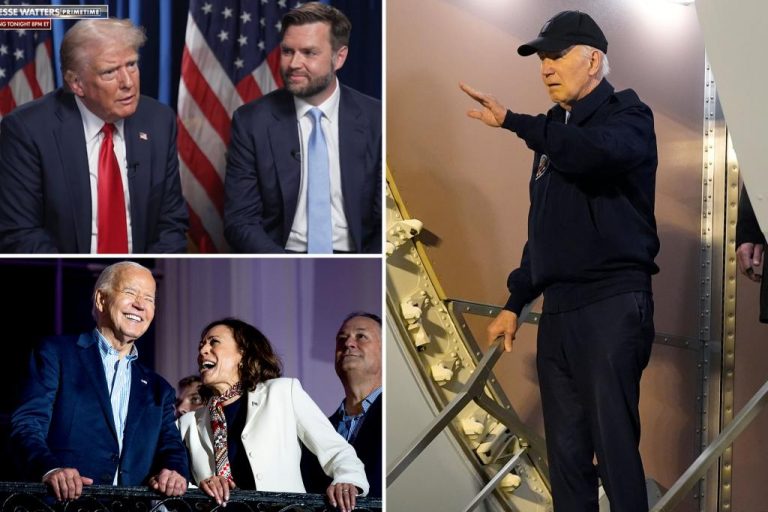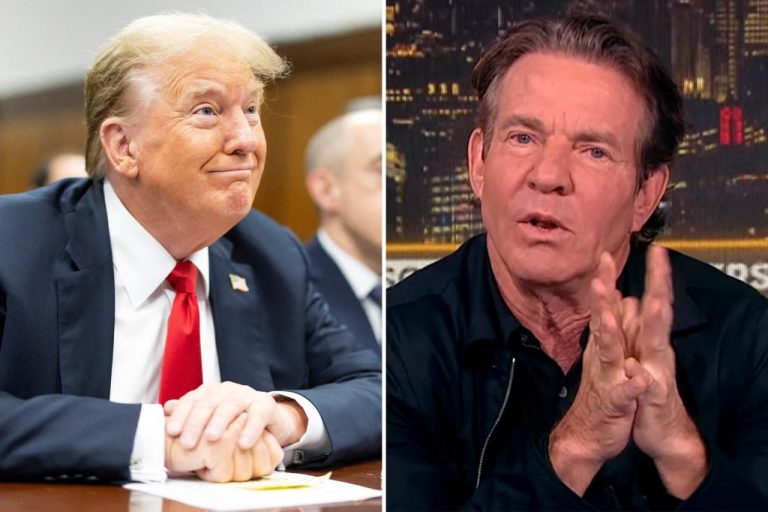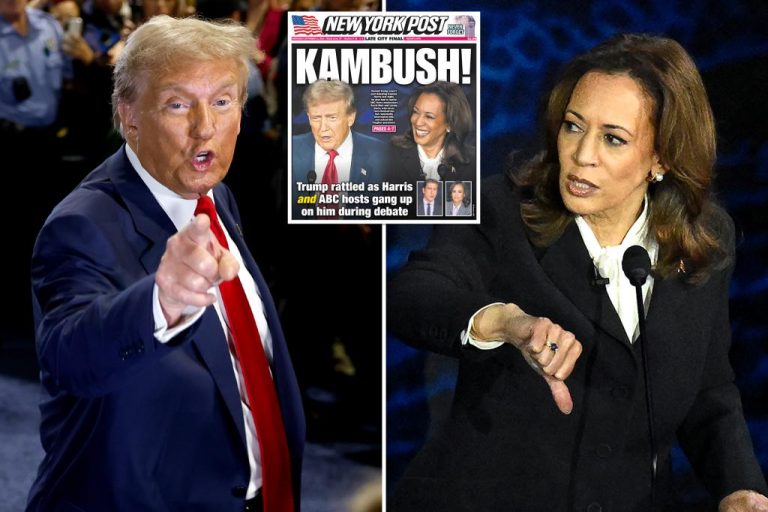Is Trump able to take away licenses from TV stations he dislikes?
In the final weeks of the 2024 presidential election, the spotlight is once again on former President Donald Trump as he unleashes a torrent of attacks on mainstream news media. His longstanding disdain for certain journalists and news outlets has escalated significantly, with dire threats looming if he secures another term in office.
For years, Trump has not shied away from labeling the news media as “the enemy of the people.” However, recent events have seen him take his animosity to new heights by vowing to use the government to punish broadcast news networks that dare to air content that doesn’t align with his preferences.
CBS has found itself squarely in Trump’s crosshairs, with the former president accusing the network of manipulating an interview with Vice President Kamala Harris that aired on 60 Minutes on October 7. Trump, who had backed out of his own 60 Minutes interview beforehand, slammed CBS for what he described as a biased portrayal of Harris in the final broadcast.
On October 17, Trump took to Truth Social to demand the immediate removal of 60 Minutes from the airwaves, insisting that CBS should lose its broadcasting license. According to him, the alleged manipulation of Harris’s interview is tantamount to “election interference” and represents a scandal of unprecedented proportions.
Trump’s relentless campaign against CBS and other networks has brought government intervention in TV licensing to the forefront. The question on many minds is whether a sitting president has the authority to dictate what content is permissible on the airwaves.
The genesis of Trump’s feud with CBS lies in a discrepancy between a preview clip of Harris’s response to a question on the Middle East, aired on Face the Nation on October 6, and a truncated version of the same answer showcased in the actual 60 Minutes interview the following day.
During the interview, host Bill Whitaker posed a question to Harris about the U.S.’s influence over Israeli Prime Minister Netanyahu. The Face the Nation preview clip quoted Harris as saying the region had seen movement by Israel partly due to U.S. advocacy. However, the full interview on 60 Minutes featured a more concise version of her response centering on diplomatic efforts with Israel’s leadership.
In a statement issued on October 20, 60 Minutes clarified that the difference in the clips was a matter of editing efficiency to cover various topics within the interview. Despite this explanation, Trump remains fixated on CBS’s alleged favoritism towards Harris.
During an interview with Fox News, Trump reiterated his intentions to dive deeper into probing CBS, hinting at potential subpoenas as part of his strategy.
As concerns swirl around government interference in TV broadcast licenses, it’s crucial to note that the Federal Communications Commission (FCC) holds authority over broadcasting regulations with the aim of serving the public interest. While major networks like ABC, CBS, and NBC are exempt from licensing requirements for news content, local affiliates must adhere to FCC guidelines and secure broadcasting licenses.
The FCC’s composition, featuring a bipartisan structure with limitations on party representation, underscores its independence from political influence. FCC Chairwoman Jessica Rosenworcel unequivocally dismissed any notions of license revocation based on a candidate’s displeasure with media coverage.
Legal experts emphasize the intricate framework of regulations that govern broadcasting licenses, highlighting the improbability of Trump successfully orchestrating license revocations. Even if a scenario arose where licenses were at stake, the legal and procedural hurdles would likely render such efforts unfeasible until well after the presidential term.
Trump’s longstanding pattern of targeting media outlets extends beyond CBS, with threats levied at ABC following the September presidential debate. His broadsides have also encompassed Comcast, the parent company of NBC and MSNBC, as he vowed to subject the conglomerate to intense scrutiny in the event of his re-election.
The landscape of media and government relations is fraught with complexities, and Trump’s continued assaults on journalistic entities have sparked concerns about the preservation of free speech. While the specter of government intervention looms, legal safeguards and regulatory frameworks act as bulwarks against unfettered executive authority over media operations.
As the 2024 election draws nearer, the clash between Trump and the media underscores the enduring tensions between political power and press freedom in a democracy grappling with diverging interests.








